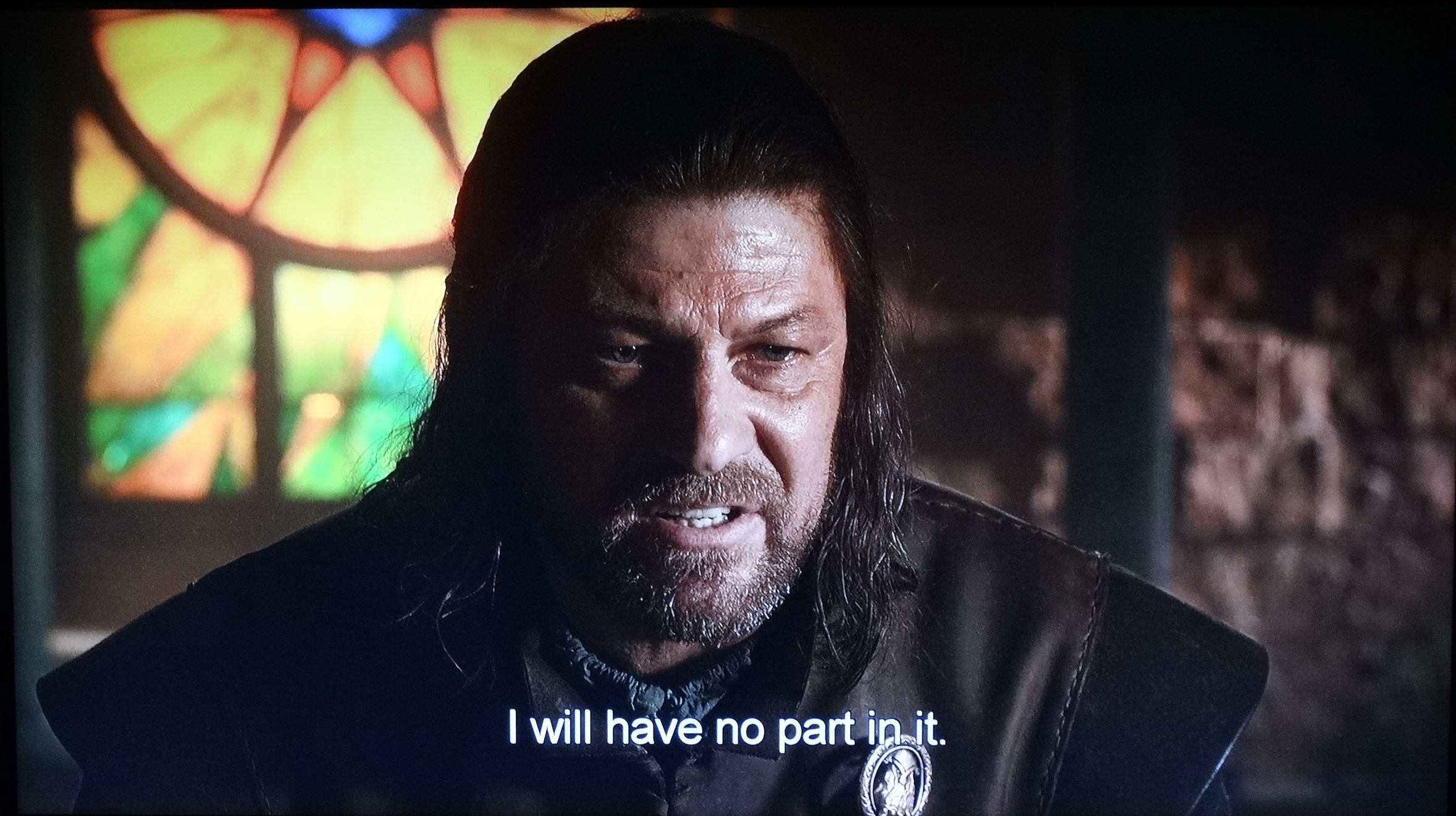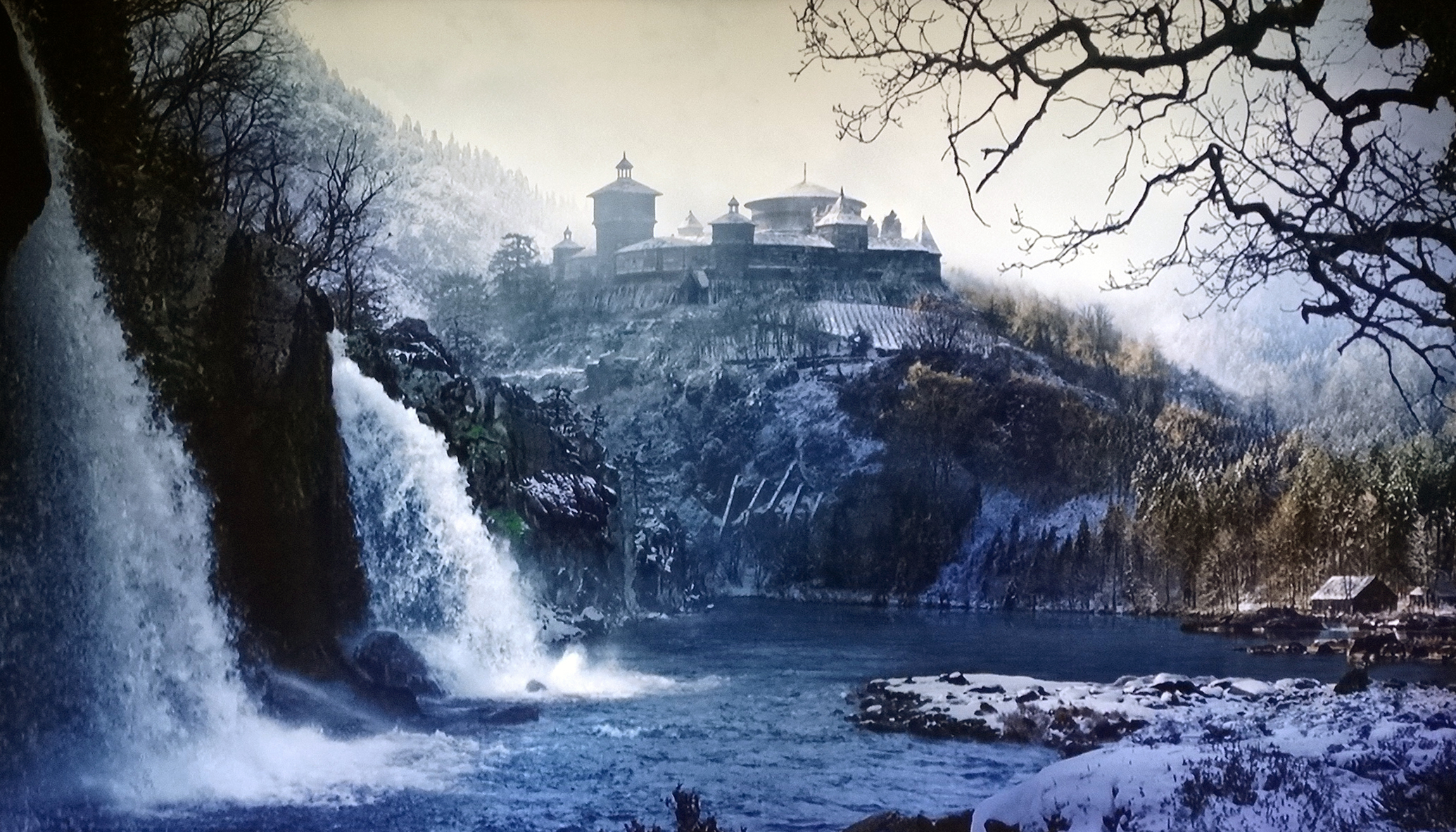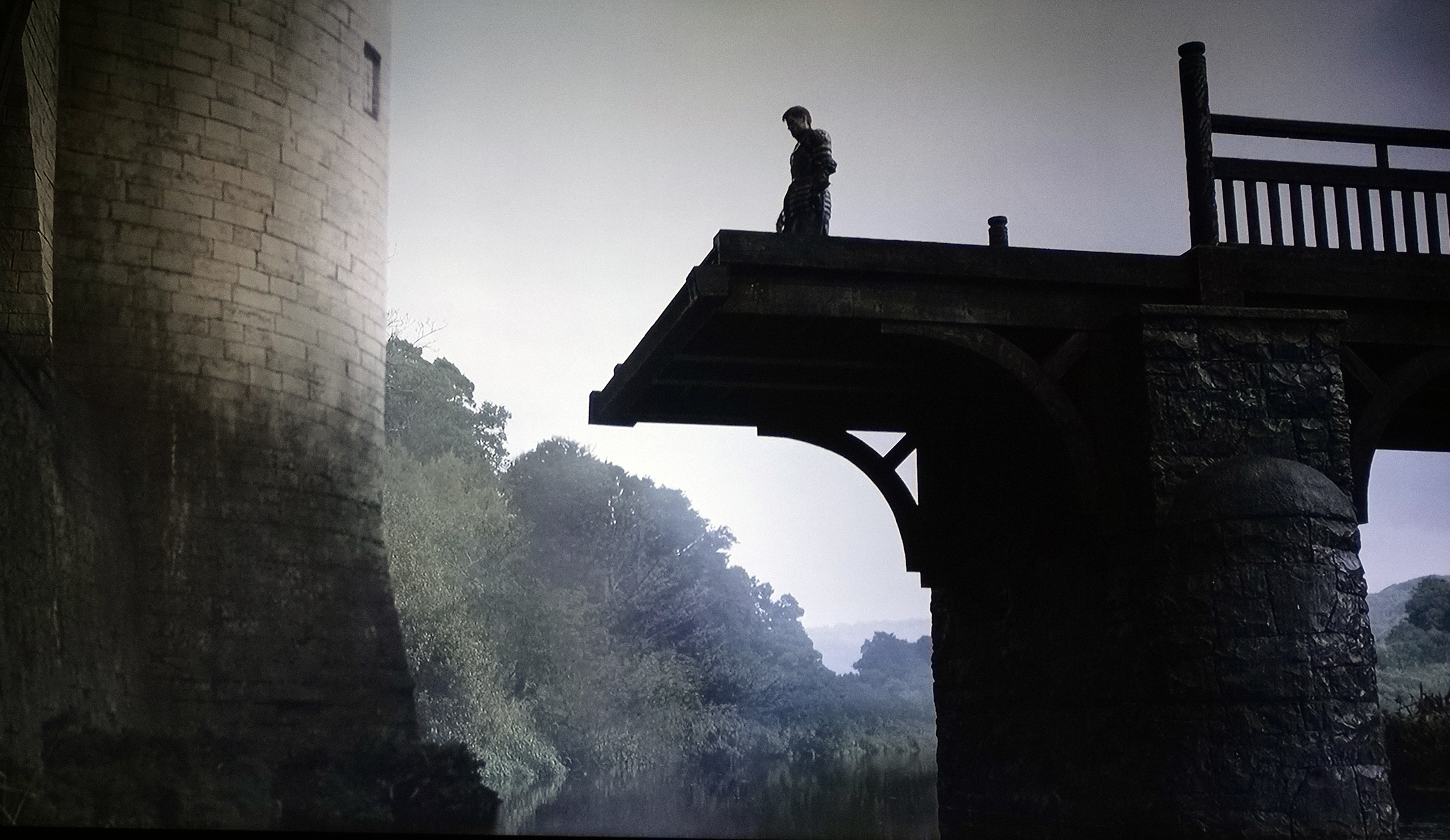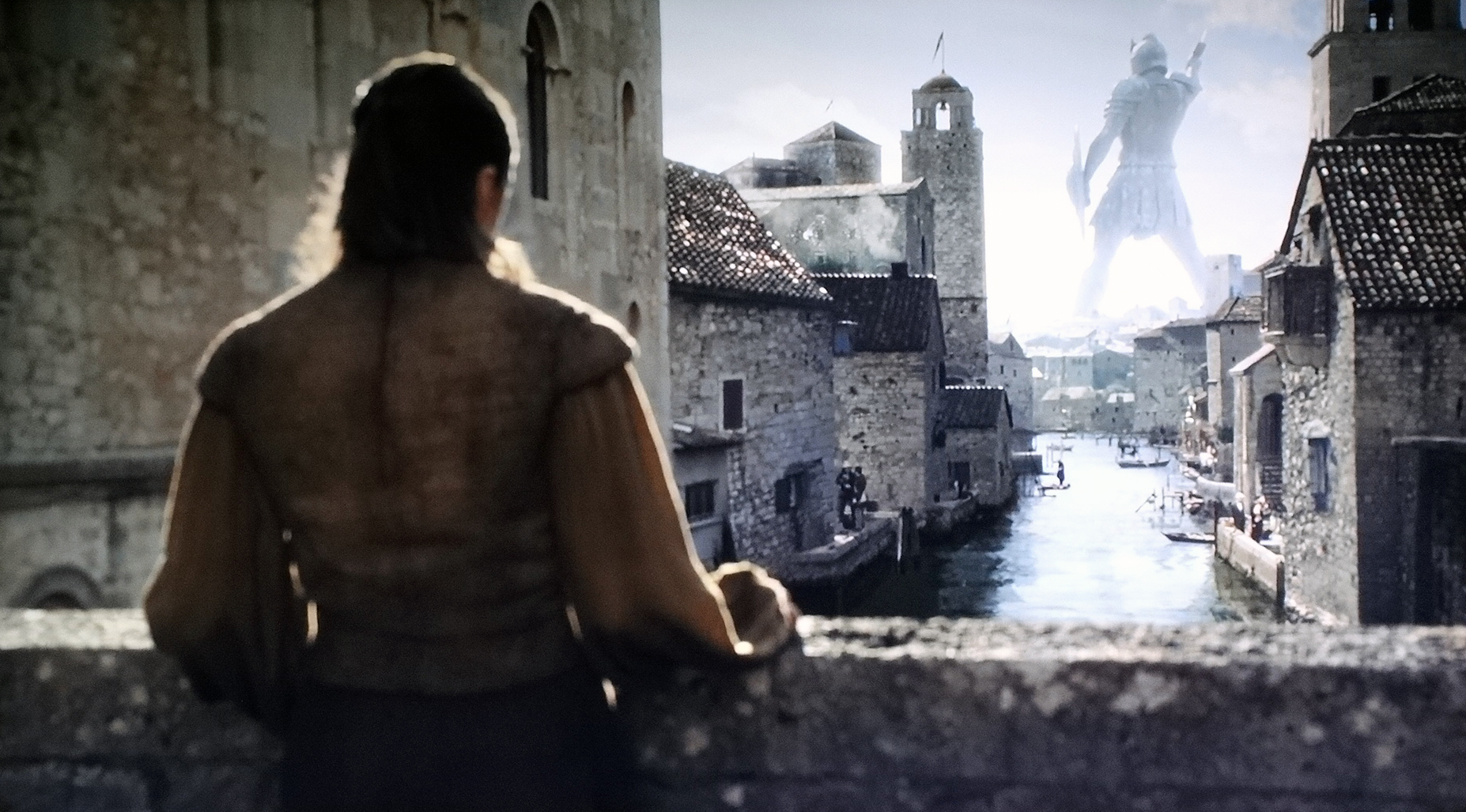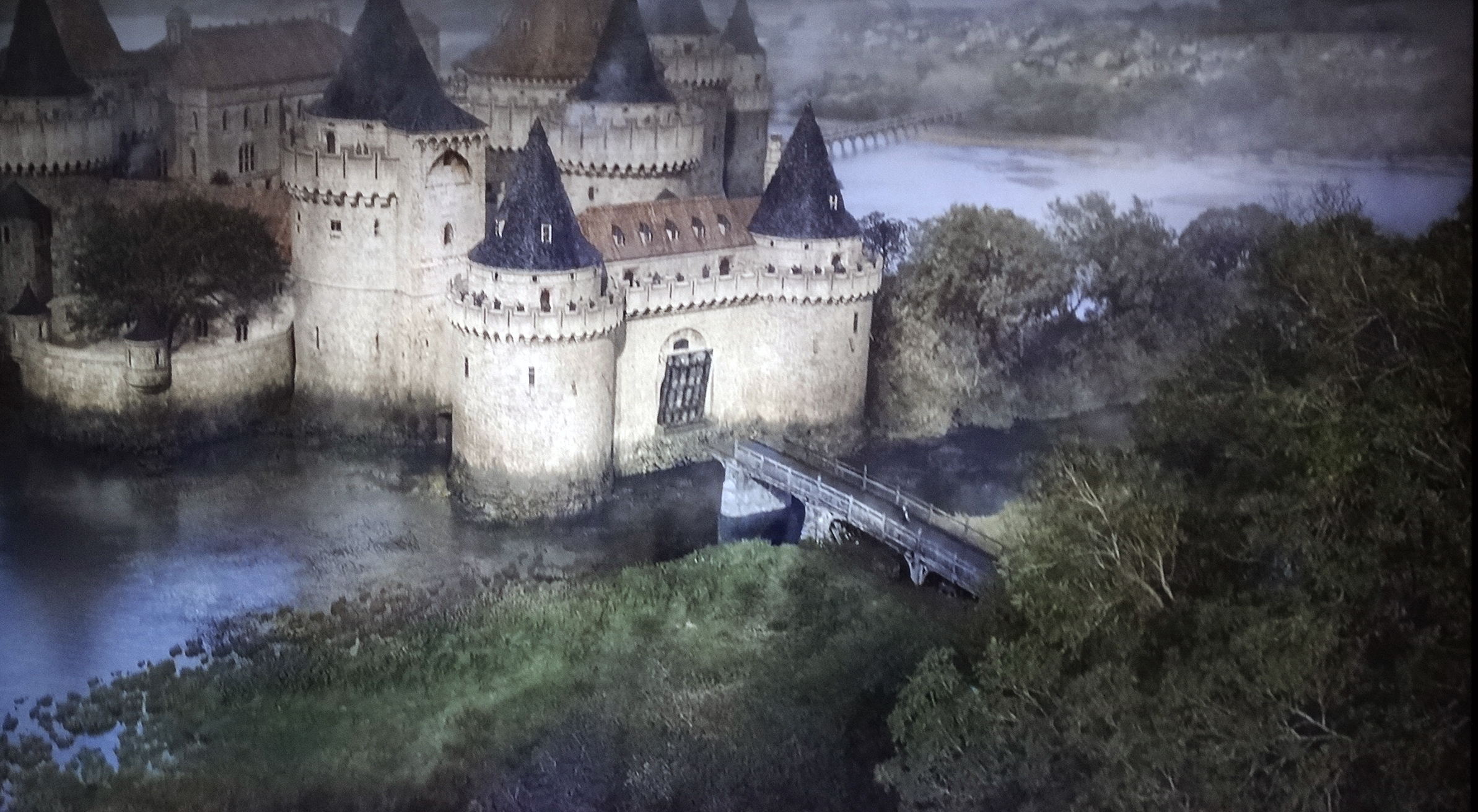‘Battle of the Bastards’ is the ninth and penultimate episode of the sixth season of HBO’s fantasy television series Game of Thrones and its 59th episode overall. This episode is emblematic of the series. It starts with a very easy victory for Dany, much easier than Caesar’s Veni, Vidi, Vici after the Masters invade Meereen with their fleet.
 Later we see the Battle of the North—the best melee battle I’ve ever seen from a cinematic point of view. Unlike Dany and the fire of her dragons that burn the invading fleet, in the Battle of the Bastards you can see the ruthless rawness of what war really is, which is reflected in this image of the poor men under the command of the bastard Jon that are about to fight in numerical disadvantage against the army of the bastard Ramsay.
Later we see the Battle of the North—the best melee battle I’ve ever seen from a cinematic point of view. Unlike Dany and the fire of her dragons that burn the invading fleet, in the Battle of the Bastards you can see the ruthless rawness of what war really is, which is reflected in this image of the poor men under the command of the bastard Jon that are about to fight in numerical disadvantage against the army of the bastard Ramsay.
Dany, on the other side of the world in Martin’s fiction, is so powerful that she’s even capable of thinking in exterminationist terms. At the pyramid, which is being bombarded from the ships in the bay, she says to Tyrion: ‘I will crucify the Masters. I will get their fleets afire, kill every last one of their soldiers and return their cities to the dirt. That is my plan’.
The contrast between the Battle of Meereen Bay and the Battle of the Bastards couldn’t be greater. While the men on Jon’s side struggle to remain alive in a battle very realistic thanks to special effects (it is difficult to film a great carnage of horses during direct combat), the SJW Dany is granted everything thanks to the fire of her dragons. It was a great blunder to put both battles in the same episode because it shows how grotesque all this feminism is where the conquering woman appears as ultra-privileged in her warrior powers while the men have to fight every inch of the ground with blood and iron, as two armies fought in the open fields of yesteryear.
In the discussion with Tyrone, her advisor, Dany, before riding her dragon, tells him that she’s completely different from her father, who wanted to burn King’s Landing including men, women and children, even those loyal to the mad king. Tyrion replies: ‘You’re talking about destroying entire cities. It’s not entirely different’.
Another infuriating thing about many episodes, including this one, is the stupid little music they play when Dany rides her dragon and everything comes out smooth and easy—really irritating, especially compared to the eerie music they play right before the Battle of the Bastards is fought. In addition, we must take into account that all this war of Dany against the Masters is due to the latter refusing to abandon the slave system. We can already imagine what fantastic cinema would be like today if the Confederates had won the American Civil War!
Just as in the pyramid of Meereen Dany wants to become genocidal and Tyrone begs her for restraint, in the gloomy north we also see a discussion after the war council in Jon’s tent: another argument between woman and man before the battle, and also with the roles reversed. Sansa says such obvious things to Jon about elemental strategy that it is sad to see the man’s naivety. Sansa also alerts Jon about the psyops Ramsay will use on the battlefield. As we’ll see later, Jon fell flat on one of those tricks, and had it not been for the unexpected intervention of the Knights of Vale at the last minute he would have lost the Battle of the Bastards.
The script is pure rubbish although the battle, as I said, is worth watching. But before it the scriptwriters inserted a scene that reminds me of what I said in ‘On Beth’s cute tits’ although now I’m not referring to breasts but the buttocks of a woman.
Theon and Yara arrive in Meereen and ally with Dany, offering their fleet in exchange for help in overthrowing Euron and acknowledging Yara’s claim on the Iron Islands. This happens after Dany won the battle in the bay thanks to her dragons. There is a memorable phrase in the dialogue of these two women. Yara said to Dany: ‘We’d like you to help us murder an uncle [Euron] or two who don’t think a woman’s fit to rule’. That happens when we look at the image below (from left to right, Tyrion, Dany, Yara, and Theon).
 Sometimes it is necessary to introduce our most intimate insights to make a point. When the episode aired on June 19, 2016, I thought how incongruous it was. In this image those who have power are women: Tyrion, the queen’s adviser, is a dwarf and Theon was literally castrated by Ramsay. When I saw the scene in 2016, I thought that we were getting the spectacle of the buttocks of the hyper-masculinised Yara, who negotiates with Dany, but they show us her buttocks in a phallic way.
Sometimes it is necessary to introduce our most intimate insights to make a point. When the episode aired on June 19, 2016, I thought how incongruous it was. In this image those who have power are women: Tyrion, the queen’s adviser, is a dwarf and Theon was literally castrated by Ramsay. When I saw the scene in 2016, I thought that we were getting the spectacle of the buttocks of the hyper-masculinised Yara, who negotiates with Dany, but they show us her buttocks in a phallic way.
A few years ago I visited the Tower of London and saw Henry VIII’s armour. I was surprised by the large metallic bulge in the genital area of the armour. Whoever was directing the tour spoke of it as a psychological weapon or psyop. But here, and I’m following my soliloquy from years ago when the episode premiered, it is Yara’s buttocks that we see, who is not only a dyke but wants to be the first queen of the Iron Islands after killing Euron. The emasculated Theon who really has the right to rule the islands once again supports, now in front of Dany, Yara’s claim and in the end these two women reach an agreement right there, in the enclosure of the pyramid that we see above.
Anyone who remembers what I said in my article about Beth’s tits will see that a creature whose buttocks seduce us cannot be a great warrior that beats us too (or a world chess champion, in Beth’s case). This topic is so important that that essay of last November will give the title to the book of my next collection of articles, although this time the central theme will be feminism. What I noticed when I saw the episode for the first time is how the language of the images seduces us: how they put Yara in tight pants so that her buttocks are drawn next to the humble Theon, the broken man.
Women have bigger buttocks than us. Years before I had already noticed this trick and also by another pair of Jewish directors, the Wachowski brothers. I’ll never forget how in The Matrix we see very well drawn the buttocks under the pants of another woman, Trinity, when she is about to board a helicopter immediately after receiving a brief course to pilot it. In cinematic language, they used a low shot by showing us this brave female warrior from behind. But this time the psyop was not the armour protrusion for Henry VIII’s balls, but Trinity’s elegant buttocks in a nonsexual scene.


